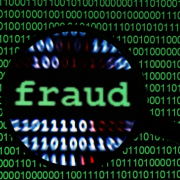Can a South Carolina nursing home attorney help resident victims against financial abuse?
South Carolina – April 6, 2021
Victims of financial abuse should contact an experienced nursing home attorney after suffering losses related to theft of money, property, and assets. In some cases, abusers may coerce residents to sign over financial accounts, or give them power of attorney over fiscal matters, endangering a resident’s financial stability which could cause problems with future long term care expenses. Loved ones and legal representatives should be aware of signs of financial abuse including:
- Hasty changes to estate documents,
- Living conditions seem to be lower than the resident’s financial means would support,
- Unexplained money, or asset transfer to unfamiliar individuals,
- Frequent regular payments made to caregivers, or financial professionals without family oversight,
- Withdrawals from banking accounts, or other funds by individuals who are not family, or resident,
- Missing jewelry, or other personal belongings of value,
- Changes in discussions surrounding financial health of resident with visitors and family that were previously involved in those matters,
- Bank signature card has additional names added,
- Forged resident signature to undertake transfers of property, or other assets.
Victims, and/or loved ones should seek the assistance of qualified legal counsel for guidance on the process of reporting, and repairing any damage caused by financial abuse actions in a nursing home.
Complaints.
Resolving any type of nursing home abuse starts with a resident, or loved ones reporting suspicions of abuse to the resident home administrators, a South Carolina Long Term Care Ombudsman, the South Carolina’s Department of Health and Environmental Control, and reporting to the South Carolina Department of Social Services. Any one of these agencies may be able to provide insight to loved ones, or resident victims of abuse. A South Carolina nursing home attorney could work with various agencies to build a case for damages against an abuser of a nursing home resident.
Abuse evidence.
It is important for legal case building, and proof of a complaint of financial abuse that evidence be collected. Evidence of abuse may include the victim’s written account of activities leading up to financial abuses, theft, or other financially related actions that were harmful to the resident. The written account should include:
- Dates, times, locations of abuse,
- How the abuse has affected the resident,
- Who caused the abuse,
- Witnesses and their accounts of what happened with descriptions at the facility,
- Records of complaints previously made to nursing home.
Consultation with a competent South Carolina attorney, who is knowledgeable about elder law protections may be beneficial, when a resident, or loved one wants to make a formal complaint against a nursing home after financial abuse, or theft has caused harm to a resident.
South Carolina law.
South Carolina nursing home facilities have standard operating procedures requiring administrative personnel to protect residents. If residents suffer harm directly related to a negative nursing home encounter that exacerbated an existing health condition, or placed them in danger, including financial instability, a skilled lawyer can identify the appropriate legal cause of action to support the nursing home’s duty of care outlined in the Resident Bill of Rights set for by the South Carolina Omnibus Adult Protection Act.
Hire legal counsel.
Victims of nursing home abuse should contact an experienced attorney at the McDougall Law Firm after suffering financial harms caused by nursing home staff, administration, or an outside party that occurred at the nursing home. There is a prescribed duty of care that long term residential facilities must maintain for South Carolina nursing home residents and it supports legal action for financial abuse.
McDougall Law Firm, LLC
115 Lady’s Island Commons
Beaufort, SC 29907
Phone: 843.379.7000
Sources.
https://www.getcaresc.com/guide/adult-advocacy
https://www.scdhec.gov/sites/default/files/Library/Regulations/R.61-17.pdfd
https://www.scstatehouse.gov/code/t44c070.php
https://www.scstatehouse.gov/code/t43c035.php



